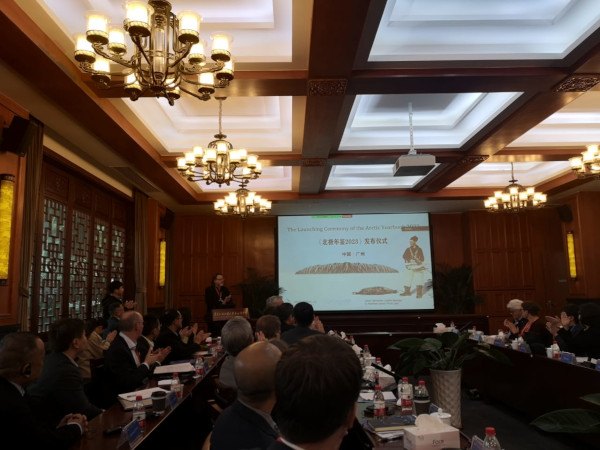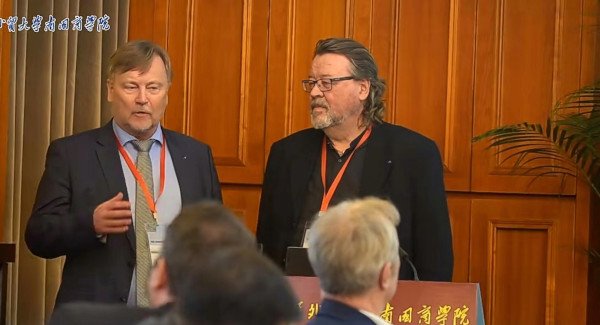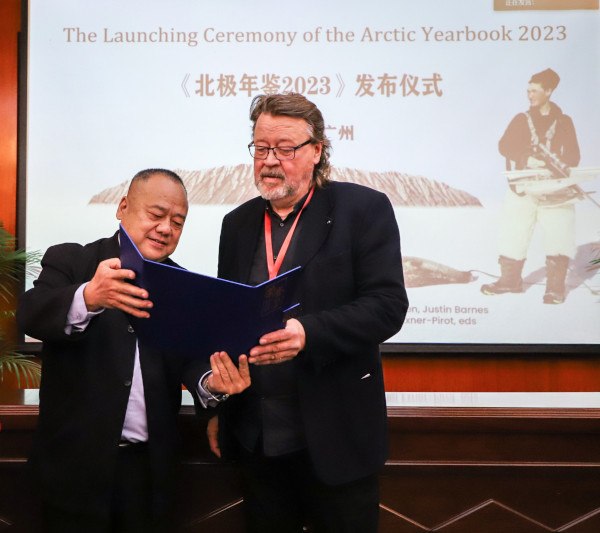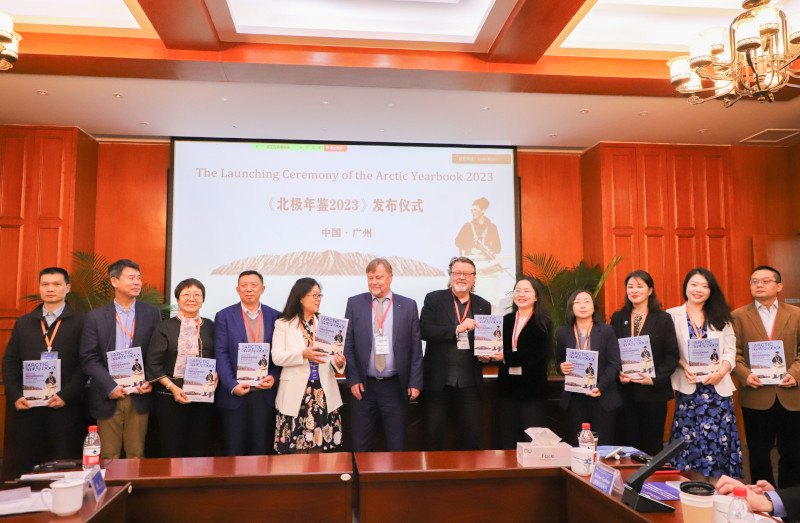The Arctic Yearbook 2023 was formally launched today at the 8th China-Nordic Arctic Research Center (CNARC) Symposium held in Guangzhou China. The yearbook is now available on the Arctic Portal or at www.arcticyearbook.com. The publication of the Arctic Yearbook is led by the excellent team of editors, Lassi Heininen, Sara Olsvig, Justin Barnes Heather Exner-Pirot, with the support of the AY editorial board, technically and graphically supported and hosted by ArcticPortal.org.
In its latest edition, the Arctic Yearbook, an interdisciplinary journal focused on Arctic governance, economics, environment, and society, dedicates its entire volume to "Arctic Indigenous Peoples: Climate, Science, Knowledge, and Governance."
Unlike previous issues that integrated Indigenous perspectives, this year's theme places Indigenous Peoples and their concerns at the forefront. The 2023 edition comprises 19 peer-reviewed articles and 12 commentaries, organized into five thematic sections.
 Section I: Climate Change and the Green Transition
Section I: Climate Change and the Green Transition
The opening section addresses key tensions between climate change, green transition, and resource extraction in the Arctic. Authors emphasize the need to prioritize the voices of Arctic Indigenous Peoples. Highlighting the Fosen wind farm conflict and addressing the impacts of colonialism on Inuit communities, this section underscores the intersection of Indigenous rights, green energy policies, and the effects of climate change.
Section II: Food, Health, and Labour
Focusing on Greenland's labor market, experiences of Chinese workers in the Maniitsoq fish factory, and food security in the Russian Arctic, this section delves into the challenges and opportunities arising from multicultural interactions and policy implications for Indigenous communities.
Section III: Governance and Economy
Examining the implications of Inuit myths on nation-building in Greenland, the integration of Environmental, Social, and Governance principles with Indigenous Sustainable Finance, and challenges in Nunavut's telecommunications infrastructure, this section explores the intersection of governance, economy, and Indigenous knowledge.
Section IV: Knowledge and Science
This section delves into collaborative projects involving Indigenous and non-Indigenous Peoples, interdisciplinary environmental decision-shaping research, and innovative art-based action research strategies. It concludes with insights on Arctic networks, the Calotte Academy, and the recently launched "Arctic Expert-to-Expert" initiative.
Section V: Cooperation and Conflict
Challenging the narrative of Arctic Exceptionalism, the authors present a broader view of the Arctic's uniqueness. The section explores the impact of Russia's invasion of Ukraine on Indigenous Peoples, China's evolving role in the Arctic, and implications for Arctic science. Briefing notes discuss the North Pacific Arctic Community, the China-Nordic Arctic Research Center, and the launch of the book "The Arctic in International Relations."
The 2023 Arctic Yearbook comprehensively explores Arctic Indigenous Peoples' experiences, challenges, and perspectives, shedding light on critical issues at the intersection of climate change, science, knowledge, and governance.
Arctic Portal is proud to have supported the Arctic Yearbook from its beginning by providing layout support, hosting and online presence, technical and outreach services, and participation on the editorial board.
Pictures from the Launch of the Arctic Yearbook 2023
Related news:
Arctic Yearbook Foundation being established
Arctic Yearbook Launches Special Issue on Arctic Pandemics
Arctic Yearbook 2023 - Call for Abstracts








